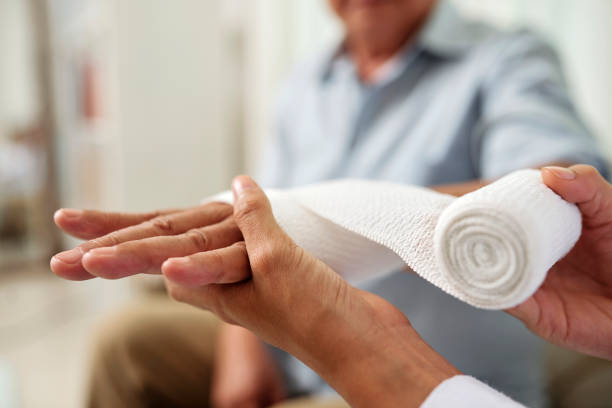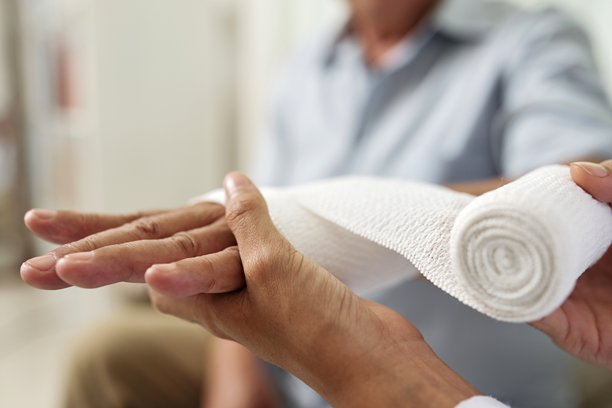Accidents happen to everyone, whether it’s a scraped knee from a fall, a cut from a kitchen mishap, or a burn from cooking. Fortunately, community pharmacies are well-equipped to help you manage these minor wounds effectively. With their significant healthcare training and on-the-job experience, pharmacists play a crucial role in treating cuts, grazes, burns and other minor injuries.
While we may call them cuts, scrapes, burns or similar, the technical name is minor wound management, so let’s learn more about it.
What is minor wound management?
Minor wound management is the care and treatment of small injuries that don’t require more serious medical intervention. It involves cleaning the wound, stopping any bleeding, dressing it properly and providing advice on ongoing care. You’ll be pleased to know that community pharmacists are ready to act as your first line of defence when it comes to handling these everyday mishaps.
Common types of minor wounds
How your community pharmacist can help
When you visit your community pharmacy for a minor wound, the first step involves an assessment. The pharmacist will ask about how the injury occurred and then examine the wound. They will most likely:
- Clean the wound: Using appropriate pain relief and antiseptics, they’ll ensure that no dirt, glass, or foreign materials are left behind.
- Stop bleeding: The pharmacist will apply pressure and dress the wound to control any bleeding.
- Apply dressings: After cleaning, they will choose the right dressing to protect the wound from infection.
- Check your tetanus cover: If appropriate, the pharmacist will ensure your tetanus vaccination is up to date so you are not at risk.
Ongoing care and advice from your community pharmacist
Wounds require ongoing management to ensure proper healing. Here’s how your community pharmacist can assist you:
- Advice on wound care: They’ll provide you with detailed instructions on how to clean and redress the wound at home.
- Signs of infection: Your community pharmacist will inform you about what to look for, such as increased redness, swelling, or discharge and when to seek further medical advice.
- Pain relief: They can recommend suitable over-the-counter pain relief options to help you manage any discomfort.
Access to quality wound care supplies
Your local community pharmacy isn’t just your minor wound care specialist, it’s a one-stop shop for all the wound care supplies you may need. This includes:
- Antiseptic solutions and creams
- Sterile dressings and bandages
- Adhesive tapes and gauze
- Pain relief medications
- Moisturising creams to support skin healing
Your community pharmacist is here to help you select the right products to ensure your wound heals properly while minimising the risk of infection.

When to Seek Further Help
While community pharmacists are skilled in managing minor wounds, it’s vital to recognise when you may need to visit a hospital or GP. If you experience severe bleeding, deep cuts, or signs of infection, don’t hesitate to seek further medical attention and call Triple Zero (000).
Your community pharmacist can do more
Don’t let minor wounds slow you down. Your community pharmacist is here to help you manage cuts, grazes and burns effectively. With their expertise and dedicated wound care services, you can feel confident in receiving the treatment you need.
Remember your community pharmacist the next time you or a family member needs help with cuts or minor wounds.



